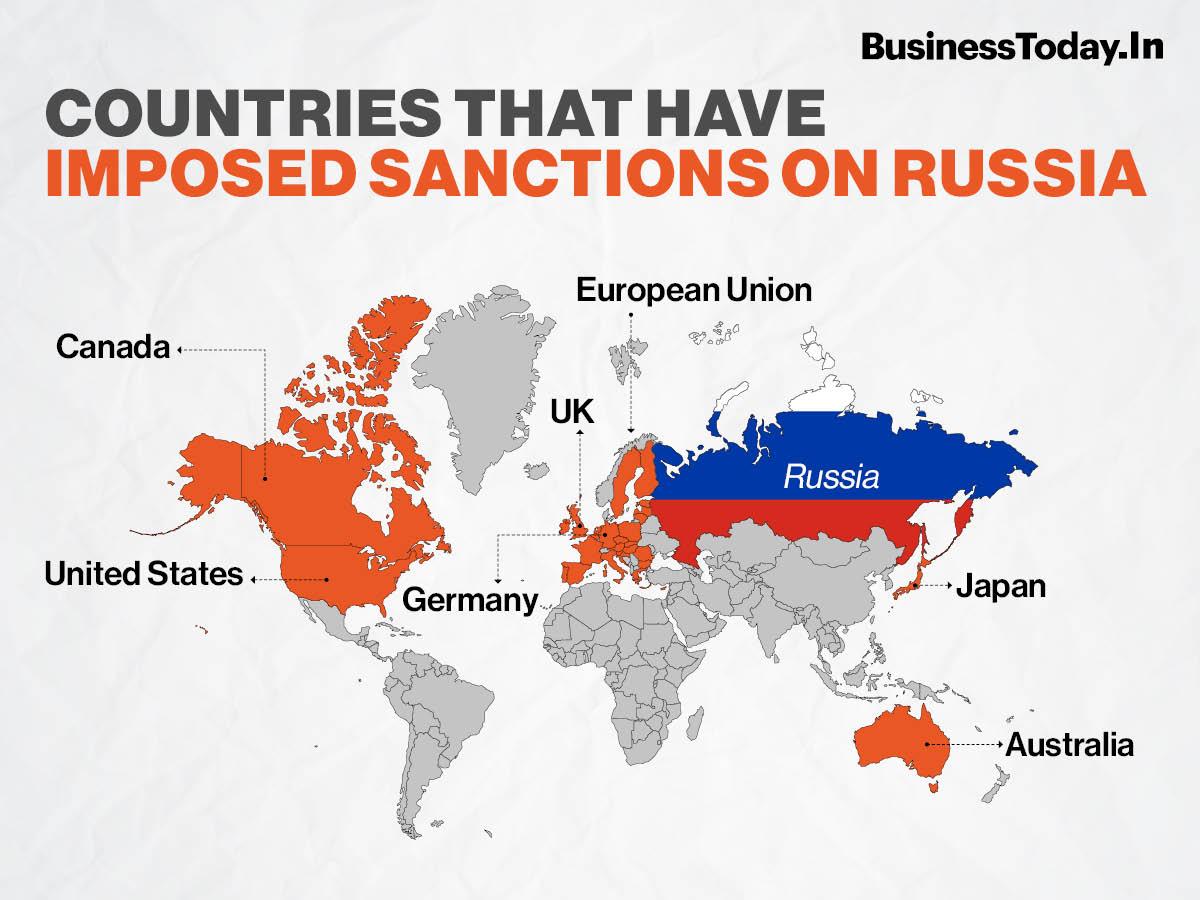In a bid to punish the Russian people and economy for the illegal invasion of Ukraine, the western world has mobilized the full brunt of its economic might through an unprecedented sanctioning campaign. The European Union, Canada, Australia and Japan join the United States in placing a bevy of restrictions against Russia, including bans on the importation of Russian gas, removing Russia from the absolutely crucial SWIFT banking system and severely limiting the financial actions of Russian banks. Couple this with the mass exodus of western corporations from Russian markets, including the suspension of Visa and Mastercard payment systems that make international payment possible, and it’s no wonder that Russia is now considered the world’s most sanctioned country.
The western world has long dominated international financial systems through control of global trade, currency and banking, and the weaponization of these systems displays the carrot-and-stick strategy that the U.S. and its allies use to direct world politics. Yet, by leaning so heavily on the leverage that stick provides, we may be enticing countries chafed by western influence to collaborate more closely, as they seek to undermine the current system and explore alternatives. Indeed, recent actions from China, India and Saudi Arabia suggest signs of U.S. financial hegemony being challenged.
 A map showing which countries have sanctioned Russia for the attack on Ukraine. Retrieved from BussinessToday.
A map showing which countries have sanctioned Russia for the attack on Ukraine. Retrieved from BussinessToday.
At the Mar. 2 United Nations General Assembly, 141 countries voted in favor of a resolution to condemn Russia’s so-called “special military operation” and demand its immediate withdrawal, while 34 countries abstained from voting. The list of abstainers has the notable inclusion of China and India, who alone house a huge chunk of the world population and economy.
Not only has China decided to ride the line of neutrality in the conflict, but by ignoring sanctions and continuing their normal political and economic relations with Russia, they stand to profit greatly from the vacuum left by the mass exit of western corporations and financial institutions. At the same time that Mastercard and Visa decided to withdraw from Russia, China’s own Unionpay bank card system has swooped in to provide many Russian banks with access to its cross-border services. China will benefit greatly from the Russian markets’ reorientation from west to east. At the same time, China has resisted mounting pressure from the U.S. and others to apply sanctions against their longtime partner, denouncing the sanctions as illegal, counterproductive and instead advocating for a peaceful resolution. This, in addition to both Russia and China’s mutual decision to diversify their reserves away from the U.S. dollar and towards their own international funds, alludes to an effort on the part of these countries to subvert the current political-economic order and create room to operate outside of U.S. systems.
 A map showing which countries voted to condemn Russia’s attack on Ukraine. Retrieved from Statista.
A map showing which countries voted to condemn Russia’s attack on Ukraine. Retrieved from Statista.
Two other countries are also making moves that threaten the dominance of the U.S. dollar, this time both friendly: India and Saudi Arabia. India has made the decision to ignore western warnings, continuing trade with Russia and purchasing Russian gas at a discount. Yet, more important than the purchase itself is the currency they decided to purchase the oil in—Rupees and Rubles. The vast majority of oil purchases in the world are conducted in U.S. dollars, one important factor that adds to the stability of the dollar as a world currency. India receives barely any oil from Russia as a percentage of its total imports; the move to reject sanctions and purchase oil in their own currencies suggests a subtle decision to push back against U.S. economic power. Still, India has a tightrope to walk, as they also must maintain relations with the European Union to ward off threats from China.
Meanwhile, our ally and repressive oil supplier Saudi Arabia has recently denied President Joe Biden’s plea to increase oil production amid rising prices. To U.S. official’s dismay, this comes at the same time that Saudi Arabia is in talks to start selling oil to China in their native currency, the yuan. Selling oil to China in yuan marks a significant policy departure for Saudi Arabia, which has exclusively sold crude oil in dollars since a deal struck with the Nixon administration in 1974 that established Saudi Arabia as a military partner and cemented the petrodollar. This move from Saudi Arabia is likely unfolding as backlash for the U.S. not providing more support for the Saudi-led genocide ravaging Yemen and for the U.S. withholding full legal protection for Prince Mohammed, who ordered the assassination of U.S. journalist Jamal Khashoggi in 2018.
Taken on their own, any of these incidents could be considered insubstantial. But taken together, they imply that the world is watching the U.S. closely right now, and starting to test the strength of its grip on the international financial system. They understand that there are many advantages to utilizing the U.S. dollar as capital, including deep liquid capital markets and the geopolitical backing the U.S. provides to their currency through military dominance. Yet, they also see how that power can be used against them. This latest campaign waged against Russia may bring the Russian people pain in the short term, but it may also accelerate what some call de-dollarization and threaten the dollar’s role as the world’s currency reserve. Countries will start to diversify their currencies, develop trade and banking systems that leave the U.S. out of the equation, and foster stronger diplomatic and military ties to stabilize and protect those systems, such as the events unfolding between Russia and China.
Russia may be penalized for now, but there’s a real possibility the sanctions won’t discourage Putin’s military aggression, will accelerate the process of de-dollarization and only end up hurting the Russian people, not their leaders.

